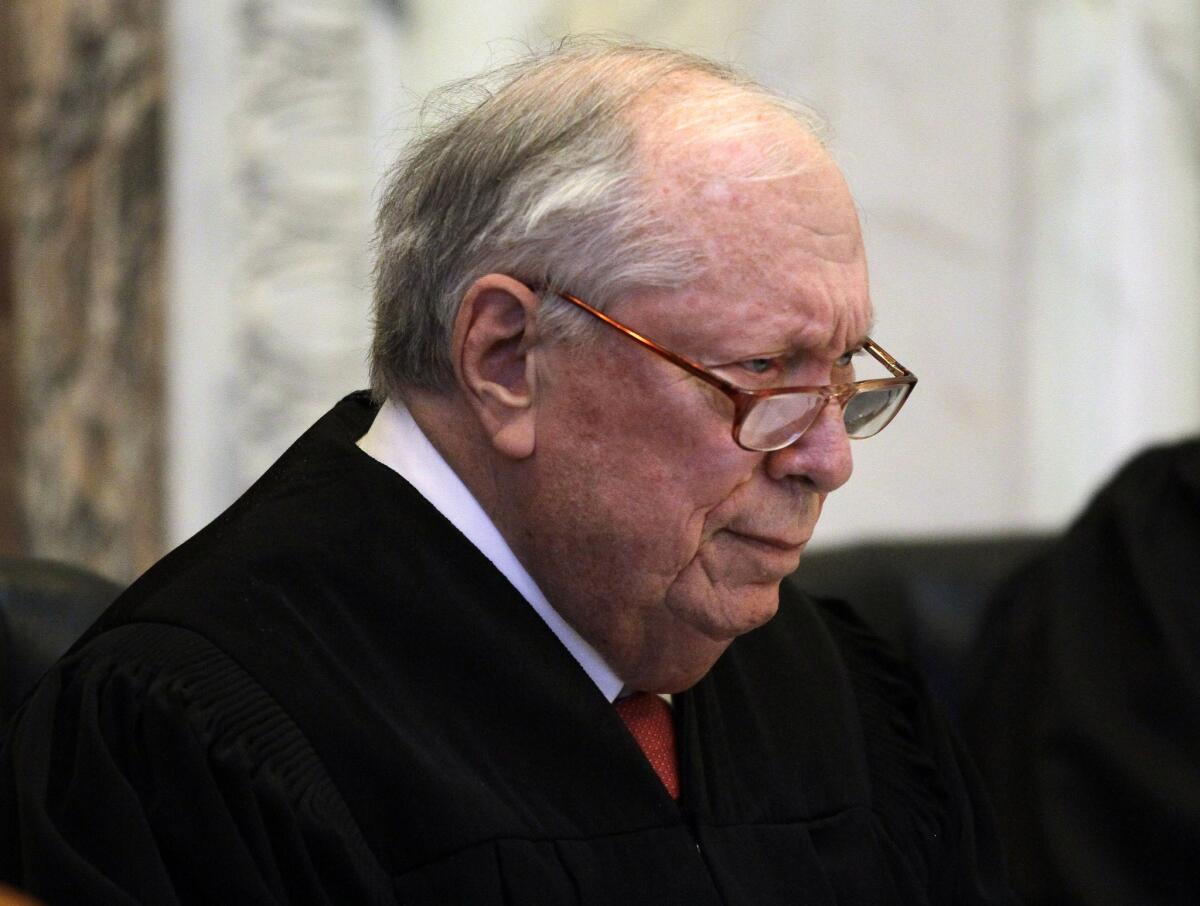U.S. appeals court overturns death sentence of California man

Reporting from San Francisco — A federal appeals court unanimously overturned the death sentence Tuesday of a California man, ruling that his lawyer was incompetent during the penalty phase of his trial.
A three-judge panel of the U.S. 9th Circuit Court of Appeals ordered California to reduce the inmate’s sentence to life without parole or give him a new sentencing trial on the grounds that his lawyer failed to investigate and present evidence that might have persuaded the jury to spare his life.
Tuesday’s decision referred to the inmate as only John Doe, saying sexual abuse he suffered in prison might “place him at risk in a prison environment.” The ruling also referred to others in the case, including the defense lawyer who performed ineffectively and the murder victim, by only their initials.
Doe was convicted of killing a woman in 1984 during a burglary at a house near where he lived. The court did not identify the county in which the crime occurred.
During the penalty phase of Doe’s trial, when jurors decide whether the defendant should be sentenced to death or life without parole, Doe’s lawyer failed to present evidence that he had been repeatedly raped in prison in the South when he was teenager, had been neglected and abused as a child and had developed mental illness and engaged in substance abuse.
“Evidence about Doe’s childhood would have demonstrated to the jury that the trauma he suffered in prison was not isolated, but rather the most disturbing of multiple episodes in a horrific series that stretched back to his birth,” Judge Stephen Reinhardt, a Carter appointee, wrote for the court.
Under a 1996 law, federal judges must defer to the decisions of state judges in such cases. The California Supreme Court upheld Doe’s conviction and sentence.
But because Doe filed his challenge in 1994, the panel said it was entitled to review the evidence from a fresh perspective.
“There is a substantial probability that there would have been a different result at the penalty phase had counsel’s performance during that phase of the trial not been ineffective,” the panel concluded.
The ruling quoted Doe’s lawyer, identified as J.B., as admitting he did not prepare adequately for the penalty phase because he was inexperienced and over-confident.
Doe was 17 when he was sent to a “notorious” but unidentified prison in the South for stealing two purses, the court said. Evidence indicated Doe was brutally and repeatedly raped while in prison and emerged years later with major depression and post-traumatic stress disorder, according to the court.
Follow @mauradolan.
More to Read
Sign up for Essential California
The most important California stories and recommendations in your inbox every morning.
You may occasionally receive promotional content from the Los Angeles Times.











